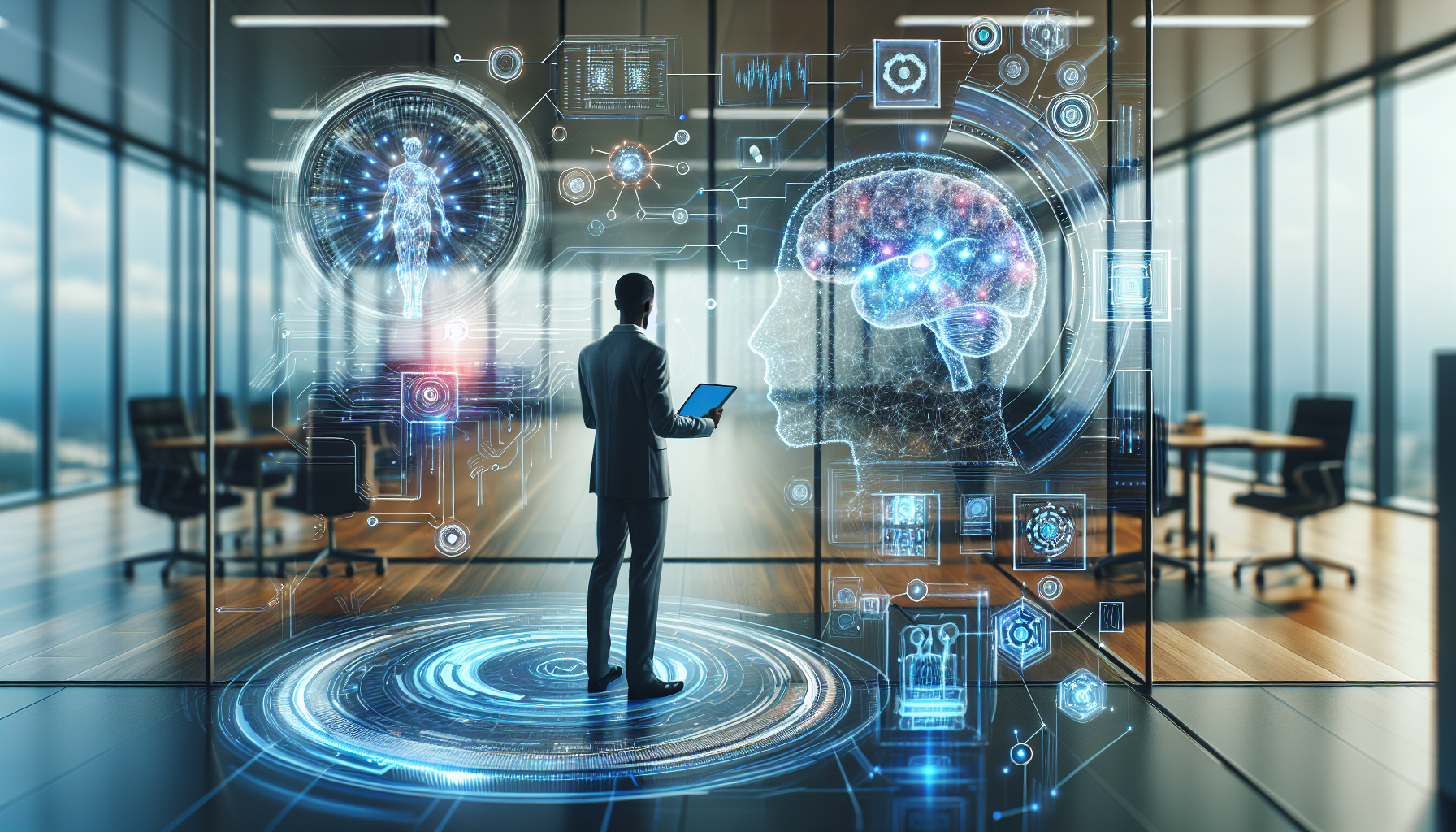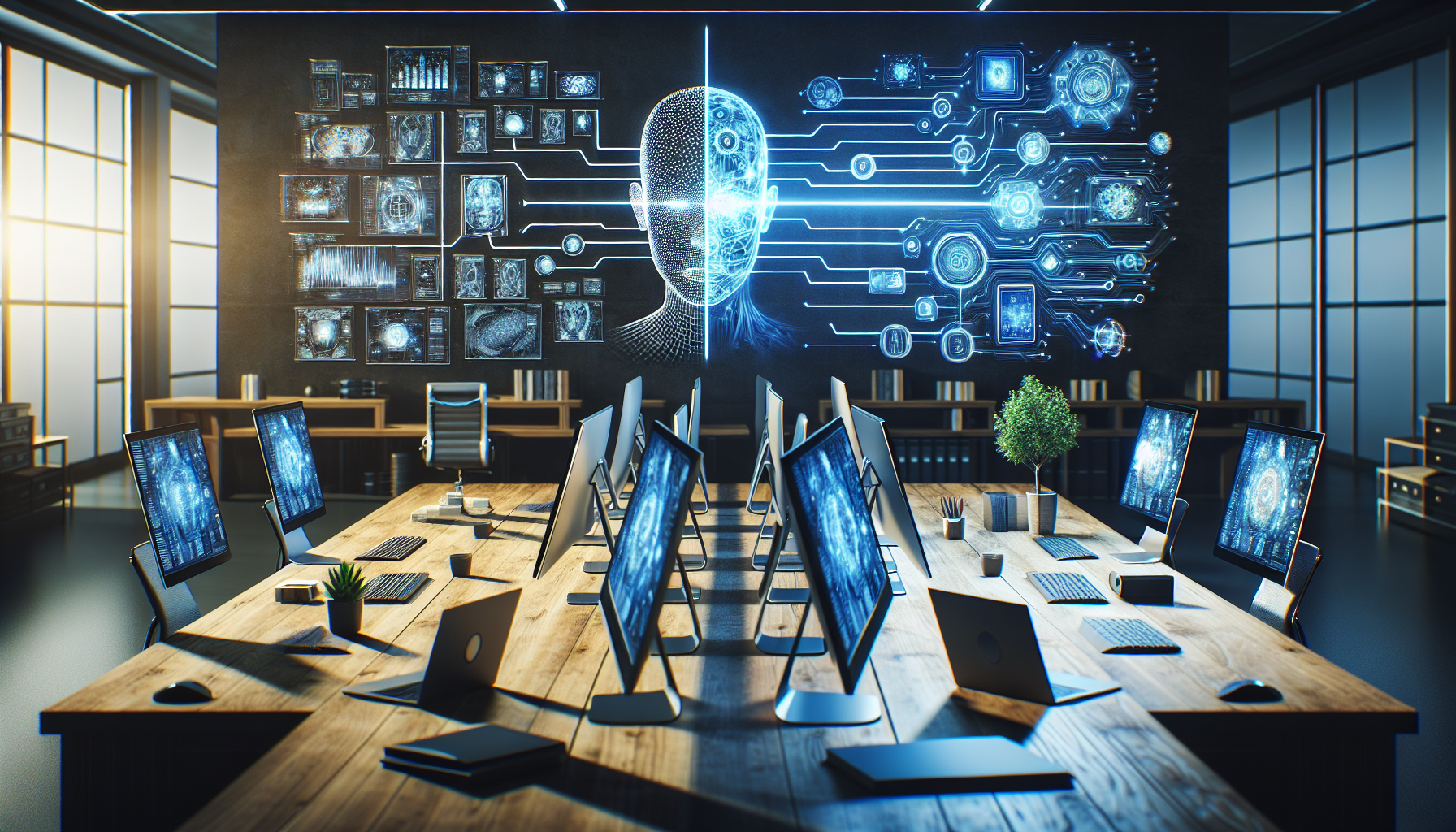
AI in Space Exploration: A How-to Guide for the Universe's Final Frontier
November 8, 2025
Imagine a universe where intelligent machines chart the stars, mapping cosmic mysteries with precision and speed. This isn't merely the stuff of science fiction; it's the unfolding reality of artificial intelligence in space exploration. As we stand on the cusp of interstellar discovery, AI emerges as an indispensable ally in our quest to understand the cosmos. This guide will explore how AI is transforming space exploration and why it is crucial for the future of humanity.
Space is the ultimate frontier, vast and unyielding. Human explorers have always been driven by the challenge of the unknown, yet the sheer scale of the universe makes it a Herculean task. Enter artificial intelligence, an innovation that doesn't need sustenance or rest, and can process data at lightning speed. From autonomous navigation systems to intelligent data analysis, AI is not only enhancing our capabilities but is also redefining the boundaries of what is possible.
Firstly, AI is revolutionizing spacecraft autonomy. In the vast emptiness of space, communication delays are inevitable. For example, it can take several minutes for a signal to travel from Earth to Mars. This delay is critical when making immediate decisions. AI systems, like those used in autonomous rovers, can analyze their environment and make decisions instantaneously. These systems can navigate treacherous terrains, identify geological features of interest, and optimize their own paths without human intervention. This level of autonomy not only increases efficiency but also extends the reach of missions, allowing spacecraft to venture into more challenging and distant regions.
Moreover, AI's role in data analysis cannot be overstated. Space missions generate enormous amounts of data, from high-resolution images to spectral readings. Traditionally, scientists on Earth would sift through this data manually—a time-consuming and often tedious process. AI algorithms, however, can process these datasets far more quickly and with greater accuracy. Machine learning models can identify patterns that might escape human eyes, uncovering new insights about planetary atmospheres, surface compositions, and potential signs of life. By autonomously processing data, AI allows scientists to focus on interpreting findings and planning future missions.
Another exciting application of AI in space is its contribution to satellite technology. With thousands of satellites orbiting Earth, managing these resources is a complex task. AI can optimize satellite operations, from collision avoidance to ensuring efficient use of onboard systems. This not only protects costly equipment but also enhances the longevity and functionality of the satellite network, providing better communication and data services back on Earth.
AI also plays a pivotal role in the search for extraterrestrial life. By analyzing data from telescopes and space probes, AI can detect anomalies or patterns that indicate the potential presence of life. For instance, AI algorithms have been used to analyze the light spectra emitted by distant planets, searching for biosignatures—indicators of life such as water vapor, oxygen, or methane. This capability accelerates the identification of exoplanets that might support life, bringing us closer to answering the age-old question: are we alone in the universe?
The integration of AI in space exploration is not without challenges. Concerns about reliability, ethical considerations, and the need for international cooperation must be addressed. However, the potential benefits far outweigh these challenges. AI offers a new lens through which to view the universe, enhancing human ability to explore and understand our cosmic surroundings.
As we look to the stars, the partnership between human ingenuity and artificial intelligence will undoubtedly play a central role. The vastness of space may be daunting, but AI provides the tools to navigate it. The future of space exploration lies in the synergy between our curiosity and the capabilities of intelligent machines.
Imagine a future where AI not only guides our spacecraft but also helps terraform planets, creating new worlds for future generations. How will these advancements redefine humanity's place in the cosmos? As we continue this journey, the question is not whether AI will be part of our exploration but how far it will take us. What new horizons will we discover with AI as our guide? The answers lie among the stars, waiting to be uncovered.


